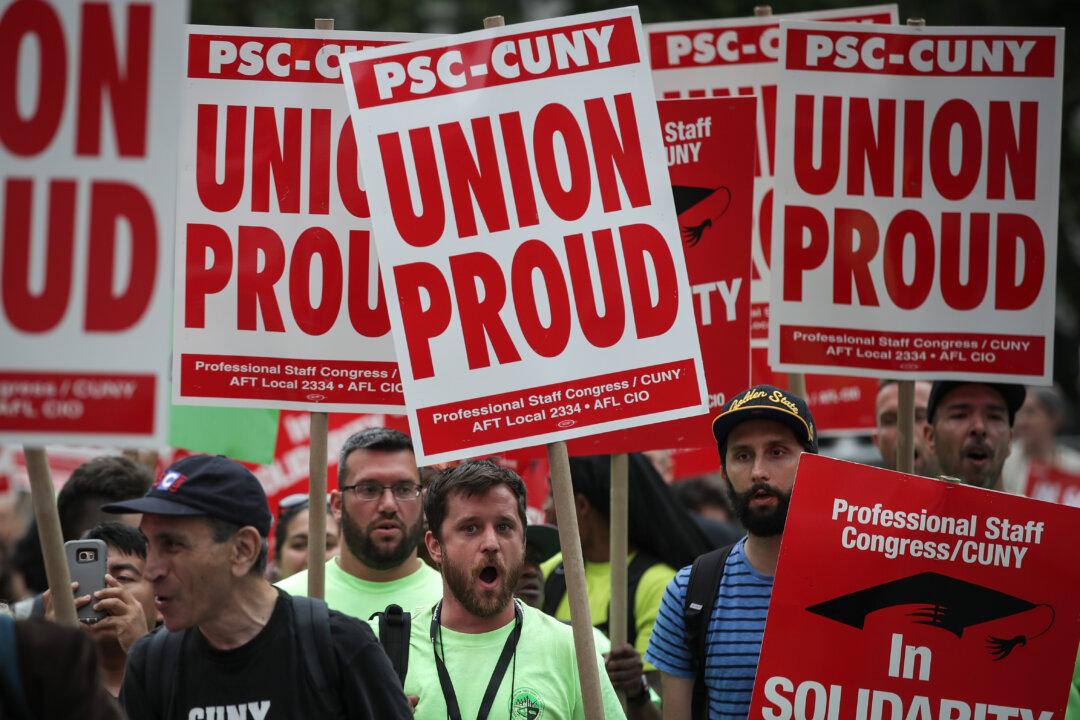While Mark Janus won a landmark legal victory in 2018 outlawing public-sector unions’ collection of forced agency fees from nonmembers, the Supreme Court has denied his follow-up request to have his money reimbursed, without granting him a hearing.
The new ruling in which the high court refused to consider the petition for certiorari in Janus v. AFSCME, which bears the same title of proceeding as the landmark ruling, came on Jan. 25. The court didn’t explain why it acted. No justices indicated they dissented from the decision.





